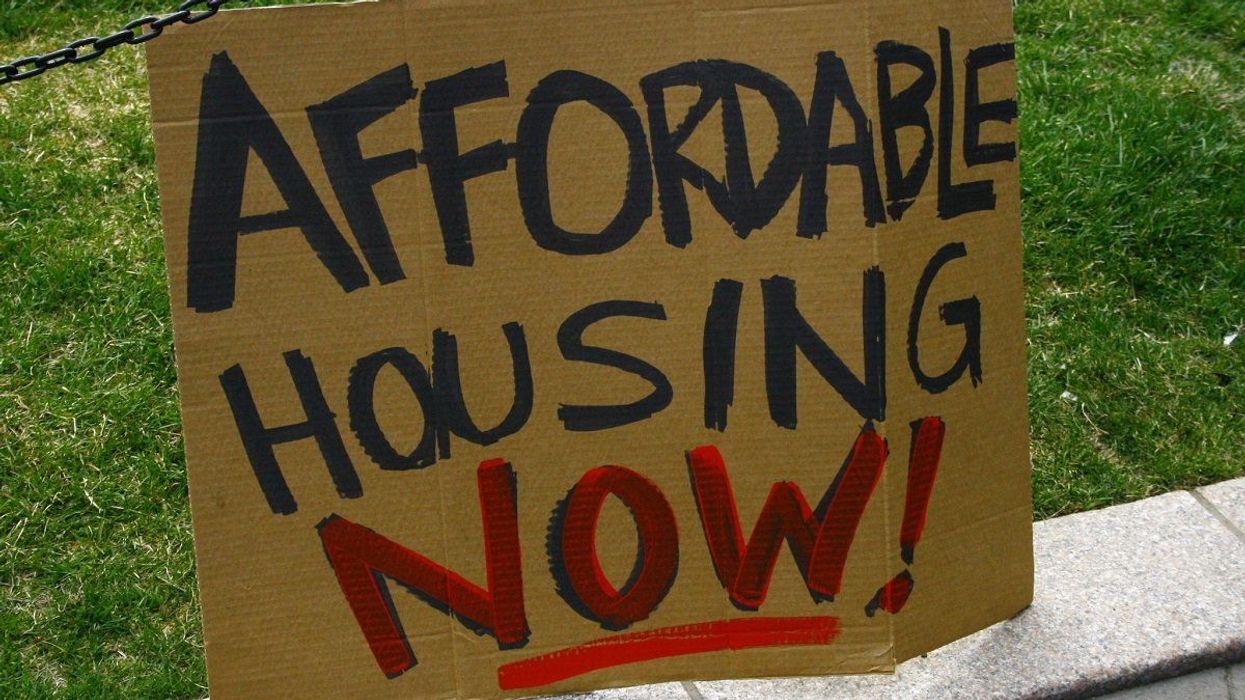“Affordable Housing” is the new buzz in Toronto’s real estate market.
It’s become journalists’ favourite headline grabber. And, in a pre-election Ontario, the perfect phrase with which to chase votes.
Storeys is no exception, having posted no fewer than a dozen stories in the last 90 days about the subject. And yet despite all the coverage in our own publication, in the Toronto Star, on the CBC, in the legislature, or in texts between frustrated Millennials, frankly, I’m still unclear as to what the phrase means.
The Ministry of Municipal Affairs and Housing’s website conveniently offers a definition.
It describes affordable housing in the case of home ownership, as “housing for which the purchase price results in annual accommodation costs which do not exceed 30 per cent of gross annual household income for low- and moderate-income households; or housing for which the purchase price is at least 10 per cent below the average purchase price of a resale unit in the regional market area”.
In the case of rental housing, the site suggests it should be the least expensive of “a unit for which the rent does not exceed 30 per cent of gross annual household income for low- and moderate-income households; or a unit for which the rent is at or below the average market rent of a unit in the regional market area”.
Clear enough, and yet I’m still confused.
For those struggling to earn a living wage in Ontario, those at or near the poverty line, or for those for whom a monthly decision includes whether to pay for groceries, a TTC pass, or rent, I get what affordable housing means.
I get that as a responsible society, housing for our vulnerable population must be protected, legislated and a collective priority.
But lately, it seems to me that the issue of affordable housing has come to take on a different meaning.
A more subjective definition. A more selfish sentiment.
From what affordable means for us, to what affordable means to me.
It leaves me to wonder, if I can afford a half-million-dollar condo in the suburbs, but not an $850,000 condo in the core, am I a victim?
If I’m unwilling to commute to my job, but can’t afford to rent near my downtown office, have I been systemically disadvantaged?
If the reality of my first dream home has to give way to the reality of a starter home, have I been deprived of my rights?
If I was willing to live in a “cheap” downtown apartment with an absentee landlord, but am unwilling to pay more rent to have the building’s landlord make improvements, have I been harmed?
If you’ve been reading the papers lately, the answer seems to be yes!
Affordability, or the lack thereof in Toronto’s housing market, has generated more than its share of headlines.
Housing advocates have turned it into a rallying cry. Tenants have hijacked the phrase to justify rent strikes. Politicians have made it into a campaign issue. And developers have embraced it as a marketing tactic.
With so many laying claim to the phrase and so many more applying their own meaning — for their own purposes — how can we ever truly understand the issue?
If in Toronto’s current real estate environment, where the fervor to find housing is currently being overwhelmed by a passion to declare it unaffordable how can we ever agree on what building an affordable city truly means, when the word itself has no meaning.
Or worse, too many meanings.
It seems to me, that when affordable housing is allowed to mean something different to everyone, it will quickly mean nothing to us all.





















